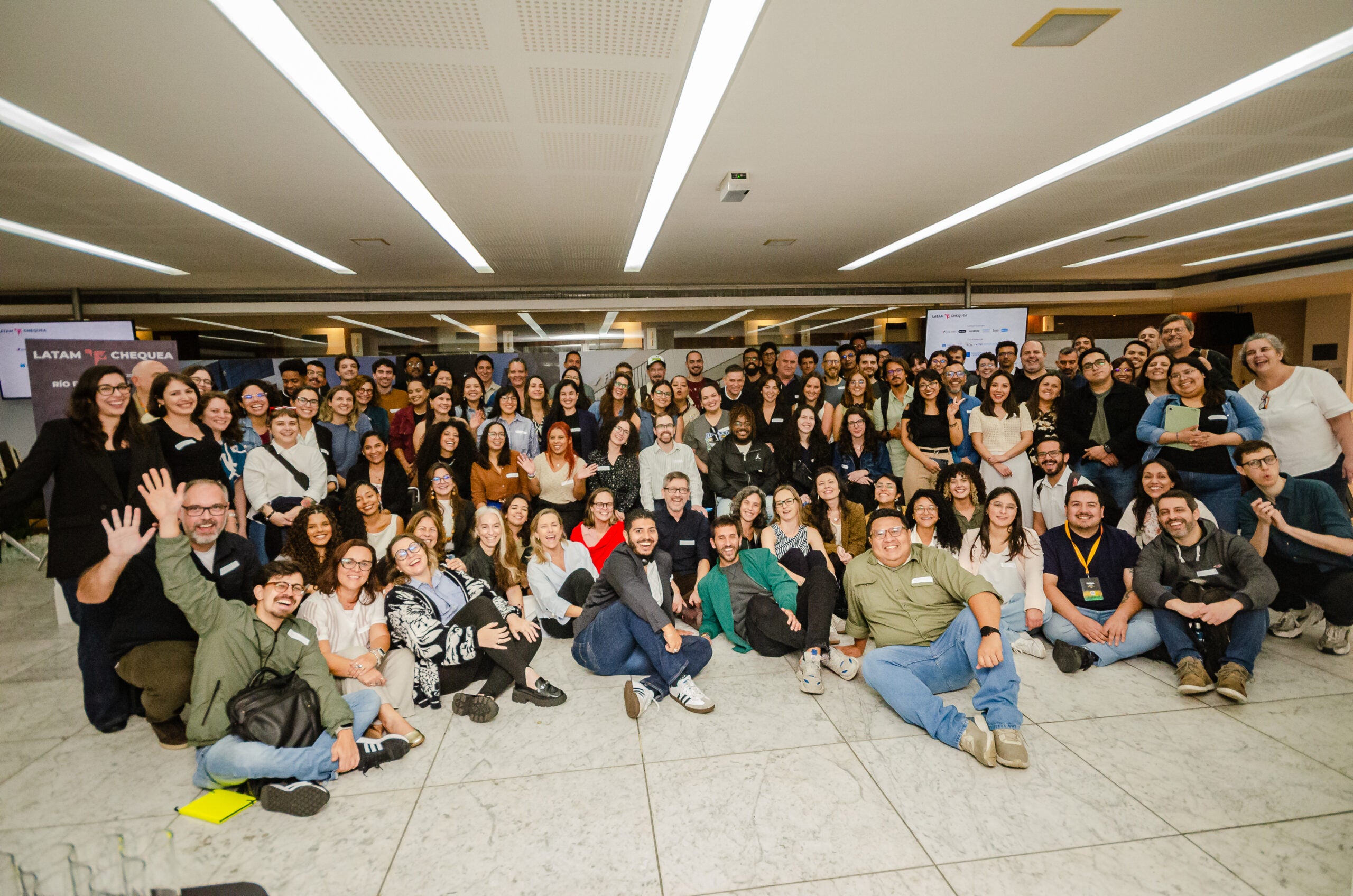The importance of free, independent and truthful journalism for democracies is widely accepted by human rights organizations and experts. That’s why these same experts, advocates and journalists have been warning for years about the serious consequences of disinformation on journalism and, consequently, on democracies.
However, fact-checking network Latam Chequea says now is the crucial moment to sound the alarm and make an urgent call for different actors in society to confront this challenge more forcefully.
Fact-checking organizations in Latin America, they said, are facing “a perfect storm”: the reduction in international cooperation funds, the withdrawal of initiatives to combat disinformation by large platforms, the increase in the use of artificial intelligence, and governments with initiatives that could affect freedom of expression.
“We see that this configuration of different aspects… creates tensions and puts pressure on the information ecosystem and on fact-checking organizations,” Olivia Sohr, director of Impact and New Initiatives at Argentine fact-checking site Chequeado and a member of the Latam Chequea Board, told LatAm Journalism Review (LJR). “That's why we felt it was a very good time to make a call, to show how critical the current situation is […], to express our concern and call on these different actors to take action in the face of this challenging context.”
The network made this call through the statement "Sin verificación, gana la mentira” (Without verification, lies win), which was released on June 24, one day before the start of the 12th edition of GlobalFact, the largest international gathering of fact-checkers, sponsored by the International Fact-Checking Network (IFCN) and Poynter. This year's GlobalFact took place in Rio de Janeiro, Brazil.
Latam Chequea, which currently brings together 48 organizations from 21 countries, also held a parallel event in Brazil from which the Rio declaration emerged.
The declaration calls on technology companies to be part of the solution to addressing disinformation, not the problem, and urges them to "provide greater access to data and collaborate with those fighting” it.

Team of Latam Chequea during the event in Brazil held on June 24, 2025. (Photo: Cris Vicente Fotografía)
Sohr said that "something that worries them greatly" has to do with how social media platforms, despite having taken some steps in the fight against disinformation, have been withdrawing. One of the most serious cases is Meta's termination of the independent fact-checking program in the U.S.
Sohr recalled that even as he announced the decision, Meta CEO Mark Zuckerberg criticized the fact-checking ecosystem. "These accusations were made without any basis," Sohr said, citing Zuckerberg's allegations of alleged censorship and bias among those conducting the fact-checking.
It would be even more worrying if Meta decides to close the program in Latin America as well. According to data from Latam Chequea, 12 of its organizations are part of Meta's Third Party Fact-Checking program, which also provides financial assistance. Sohr said the financial part is concerning, but she also worries about the most important part of the program: reaching people with verified information.
“In the event that the program were closed, beyond the economic issue, there’s the possibility that those who see information won’t have access to good data,” Sohr said.
Further, artificial intelligence is increasingly being used by citizens to receive information. The concern, Sohr said, has to do with the great potential these tools have for creating disinformation, not only because of the "bad actors" who use them for this purpose, but also because the tool itself "produces low-quality information." "This is also detrimental to our information ecosystem," she said.
For Latam Chequea, AI companies must “train their models ethically, implement mechanisms to ensure the veracity of the content they generate, and accept the collaboration of expert verifiers to ensure the integrity of the information.”
Sohr said, for example, that it would be very important for artificial intelligence companies to ask themselves if they want to base their business model on one that monetizes disinformation, "which could end up creating a bigger problem for us."
Further complicating the issue, government initiatives that could impact freedom of expression are becoming increasingly common in the region. Sohr pointed to laws that declare NGOs or media outlets that receive international cooperation funding as foreign agents.
Among the most recent cases are Peru and El Salvador, but they have been seen in Paraguay and Venezuela. Nicaragua is perhaps the clearest example of the effects it can have on the media.
In addition to AI and social media companies, and governments, audiences have a "key role" in this fight against disinformation. Sohr said that only by understanding the context they face can the public take actions that could even pressure governments and platforms.
“Ultimately, it's the citizens who decide,” Sohr said. “As they become aware of the problems and what's happening, they can play a key role in seeking solutions together, in being part of the solutions, in seeing the risks and harms that disinformation creates, both on a personal level and in their relationships and ties around them. And then on a more macro level, putting pressure on the political system and on the way platforms—both artificial intelligence and social media—are acting to have a greater impact from that perspective.”